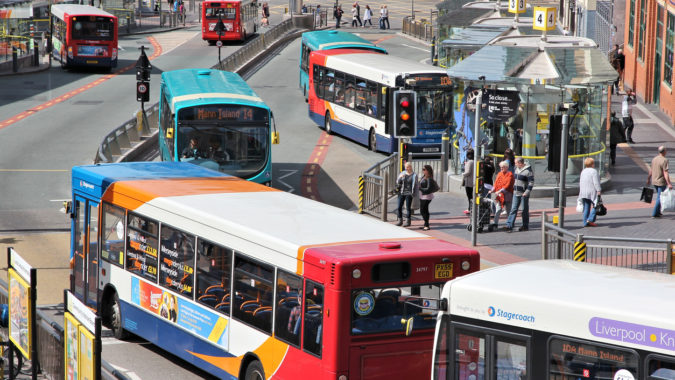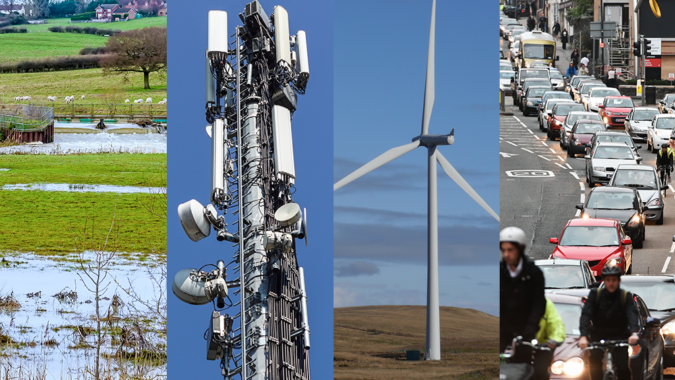Today’s National Infrastructure Assessment marks the culmination of the first phase of the National Infrastructure Commission’s work – a phase that began in October 2015, when the establishment of the Commission was announced. At that point, its complete resources comprised Lord Adonis, me and two Treasury staff loaned to us for a few weeks to get things up and running – plus a laptop each, a temporary office and an ambitious deadline to publish our first three reports in less than six months.
Since then we have grown into an organisation of around forty staff and eight Commissioners, and two Chairs in less than three years. We have well-established expert advisory groups, are soon to move into new, permanent offices in Chancery Lane, and have seven major reports under our belts – on subjects ranging from Crossrail 2 to new technology.
Those reports have already had an impact on major decisions – for example, our Smart Power report was directly addressed in the government’s recent Smart Systems and Flexibility plan, and our work on the Cambridge-Milton Keynes-Oxford arc has unlocked funding for projects such as East West Rail and driven greater integration between transport and housing policy. Nonetheless, it is today’s National Infrastructure Assessment that marks the greater break from what has gone before.
Plenty of previous bodies have looked at individual infrastructure issues, but there hasn’t been an independent body been set up to look across sectors, with a 30-year perspective, and to provide policy advice to government on a permanent basis. Unlike the work of most other independent commissions, today’s Assessment is no one-off – we will be completing one every five years in future, and over the intervening period we will hold the government to account for delivery.
When we started this process, there was no blueprint to follow. Even the closest comparator – the 2016 Australian Infrastructure Plan – had a shorter time horizon, and no equivalent to our fiscal remit. So we had to start from scratch and, over the past three years, we’ve been working with leading lights across industry, carrying out in-depth analysis, developing new methodologies, and consulting on our ideas to develop the Assessment. The long tail of supplementary reports is testament to the breadth of our research.
Inevitably, much of the scrutiny over the coming weeks and months will focus on the quality of the analytical and technical work, and while there will always be alternative perspectives on the evidence, I am confident it will stand up to challenge. But what I am equally proud of is that this has not been a process driven by economics alone – and that we have also been able to come at the challenges faced by the UK’s infrastructure systems from other, more oblique angles.
For a start, we have tried to listen not just to the views of government and industry, but also to those of the public – holding focus groups around the country, in cities, large and small towns, coastal resorts and rural villages, as well as conducting two sets of polling over the course of the process. This has genuinely challenged our thinking: I’m not sure, for example, that our recommendations on plastics recycling would have gone so far had we not heard directly the strength of the views in our focus groups on this issue. But it has also underlined the importance the public attaches to the UK’s infrastructure – to secure energy, clean water, reliable transport – and its appetite to bring it up to the standard of the best. We are hugely grateful to all those who participated, for the insight that they provided.
We’ve also looked at aspects of infrastructure that are not typically considered in reports of this kind, and I am particularly pleased with our proposals to drive up infrastructure quality and embed design thinking into major projects from the earliest stages. And we have found creative ways to bring new ideas into the debate – such as our Roads of the Future innovation competition on the impacts of connected and autonomous vehicles.
The UK’s infrastructure is not only important to its economic prosperity, but also has a wider impact on society and on quality of life. The focus groups brought home to us strongly the degree to which protection from flooding and access to clean, secure water supplies are seen as basic rights, and our recommendations respond to those demands. We draw out the importance of making our cities better places to live, with efficient transport systems, attractive public spaces and well-connected new housing. And our broadband proposals recognise that digital connections have become central to how all of us live our lives, whether in crowded city centres or rural farms and villages.
As well as our chairman and commissioners, the staff of the Secretariat have devoted enormous energy, knowledge and expertise to preparing this Assessment. Our Chief Economist, James Richardson, gets a deserved mention in the Chair’s foreword, but there are others whose contributions I would like to acknowledge. Ted Hayden left the NIC some time ago, but played a key role in devising the overall process and methodology. Katie Black and Matt Crossman led our work on transport, energy and digital and on water, flooding and waste respectively, and much of the policy thinking in the report bears their stamp. And Andrea Silberman ran the NIC’s modelling and analytical programme with pace and rigour, until her maternity leave a couple of months before publication. All of them made a big contribution.
My aim for the Commission has always been that it would be a credible, forward-thinking and influential voice in the infrastructure debate. I hope that in the first phase of our work we have met the first two of those objectives and begun to influence the agenda. But this overarching Assessment lays the foundations for a much more significant and long-lasting impact. Delivering that will be the focus of our next phase of work, starting today.


